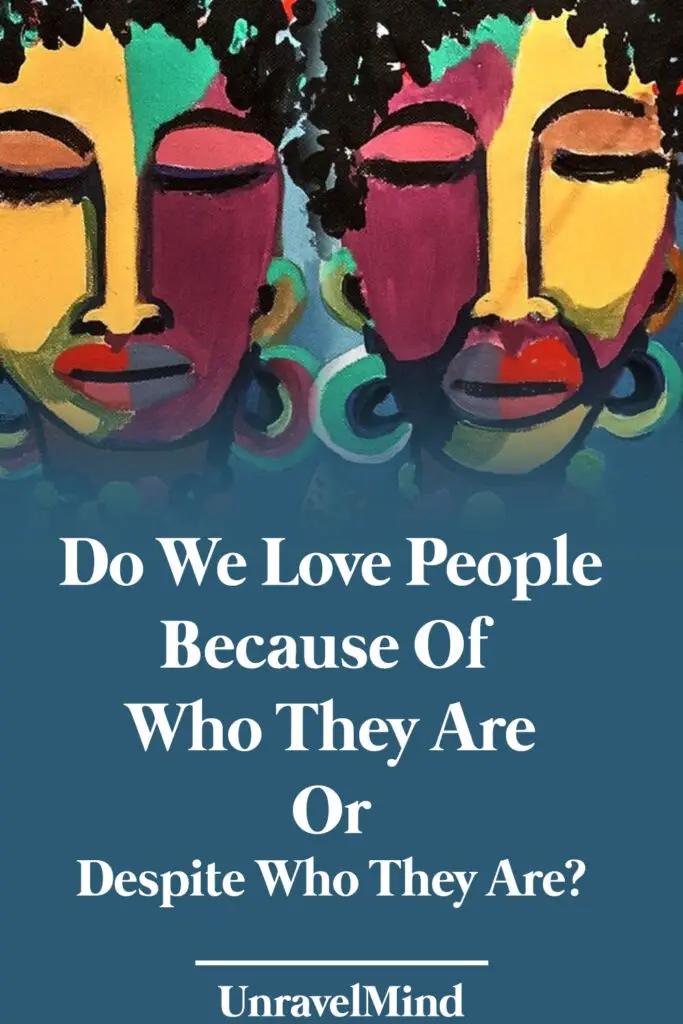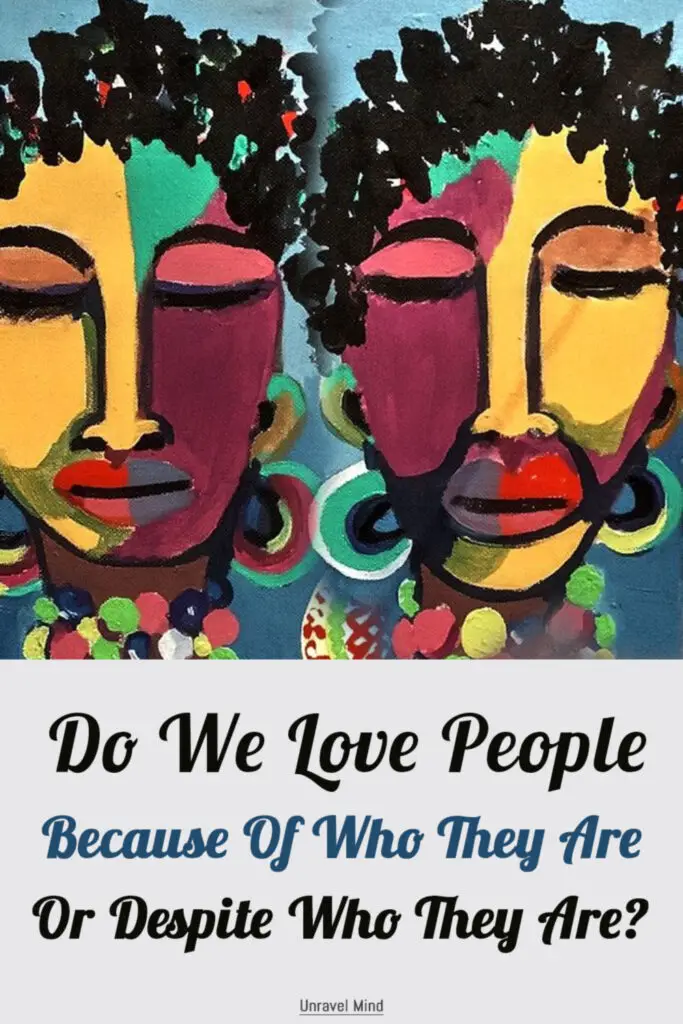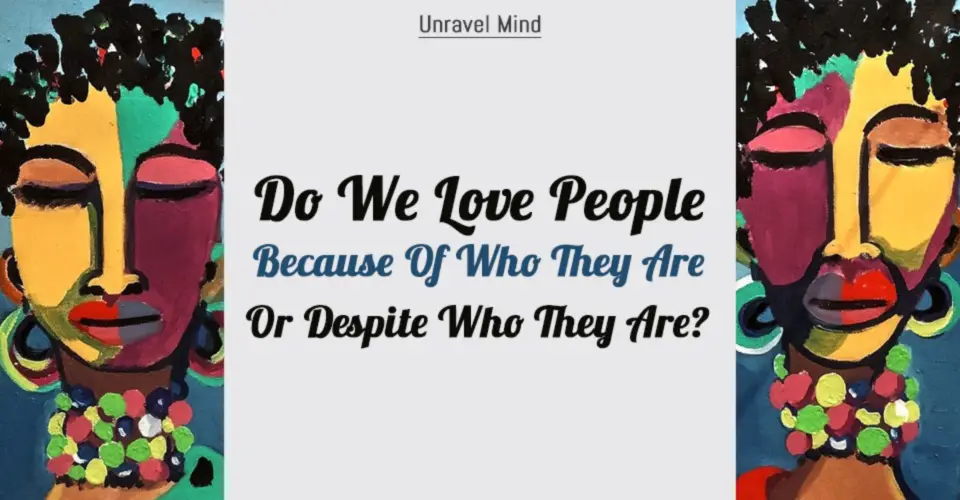Love is undoubtedly one of the most complex emotions mankind has ever conceived. Yet none of us have been denied of experiencing it at some point in our lives. We have been loved either by our parents, our friends, our partners, or our pets. Love is omnipresent. Also, the most misunderstood emotion. It is justified indeed as love transcends logic and rational thoughts.
With the coming of age, unconditional love has emerged as the ideal most form of love – if we cannot love someone irrespective of who and what they are, it is not real love. Love doesn’t have reason; it is not based on ‘if-then’. For everything must come with a why except for love. But it has always made me wonder, do we love someone for who they are? Or do we just love them, no matter who they are?
To fan my dilemma, people I know who have been in romantic relationships themselves had to give a very contradictory response to my question. Neither of their viewpoints can entirely be refuted. But it will not be an easy task for anyone to chime with one particular conviction. And this is to talk only about romantic love. Love is dynamic and it might exist in different shapes in our minds, but essentially love has one core purpose – to exceed logic. For instance, we are still to believe the love parents have for children are mostly unselfish and aren’t stationed on expectations. But are we to completely deny that they might subconsciously be motivated by self-serving needs? After all, they are flesh and bones too.
Do we love people irrespective of who they are or not?
Human beings are slaves to their needs. We do not end up being attracted to someone to pursue them without being influenced by our unconscious needs. When it comes to romantic love we are not destined to meet each other as we otherwise like to believe. We choose. We make a specific choice among the many we come across. However much we try, we cannot form an enduring bond with someone with whom we have had no significant encounters. The initial attraction which will determine the future course of courtship and relationship is often determined by exposure to the other person. Unless you know the other person existed, you would never know what you really searched for in a partner.
Apparently, the attraction might look organic but it is guided by several factors, one of which is the mental checklist of an ideal romantic partner. We do not happen to be attracted to a particularly incredible person out of the thousand far better options. We have a preconceived idea of what we want our partners to be like. It is based on our preconceived ideas that we often judge the person. We start viewing the person in concern in a positive light if he/she fits the mental description of our ideal romantic partners. If they do not, we often find them discordant with our needs, and the attraction is thwarted.
It is our ability to make a sound judgment that makes us a superior being. But all circumstances do not entail us to be judgmental. One such circumstance is when you are in love. Love is therefore conceptualized by many as ‘unreasonable’, ‘irrational’, ‘biased’, and ‘blind’. We seem to lose our brilliant capacity to logically reason when we are in love. But the concept of unconditional love only secures unrealistic expectations and utter disappointment in any kind of relationship. Most relationships come with mutual expectations. We all have some minimum expectations from our partners that arise from our unmet internal needs.
It is also not unrealistic to have expectations from your partner. But when we choose to ascertain our partner’s value by their capacity to fulfill our expectations, we move out of the sphere of love and descend into the level of toxic codependency. It is at this point that we start to view the object of our love as a mere pleasure fulfilling toy, judge him/her on their flaws, insecurities, and incapabilities.
So, do we really love someone despite their flaws?
To wrap up the debate, we indeed fall in love with someone, unknowingly, because of who they are in our knowledge – how kind they are, how they look, how intelligent or talented they are, and how polished they look on the surface. But through repeated exposure to them and frequent interactions when the love deepens between us and we together pass through the more intimate phases of love, we slowly realize that our partners are more than what they appear on the surface. They are human beings with shortcomings, insecurities, and dark parts, far from the perfection we took them to be during the honeymoon phase. They have their share of unforgettable, disturbing past, they have their emotional baggage – they might be childish, at times downright annoying, they often push your buttons, they test your patience, they make you feel like giving up on love. But in the end, do you give up? You don’t.
You learn to understand them, empathize with them, embrace their imperfections, touch their scars, care for them without intentions, you sacrifice for them. You cannot seem to go back to unloving them at this intimate state, however flawed they are. You come to witness their raw, unfiltered self and you do not bother to judge them before you love them. You love them for who they are and you wish to change not a single thing about them because whoever they are, they compliment your sense of existence, they bring you happiness and peace.
True love might not idealistically be unconditional but it indeed is free of conceit and prudence. When we love, we accept the other person just as they are. We love despite who they are.
Read more
6 Signs of Taken For Granted In Relationship
Pin it




